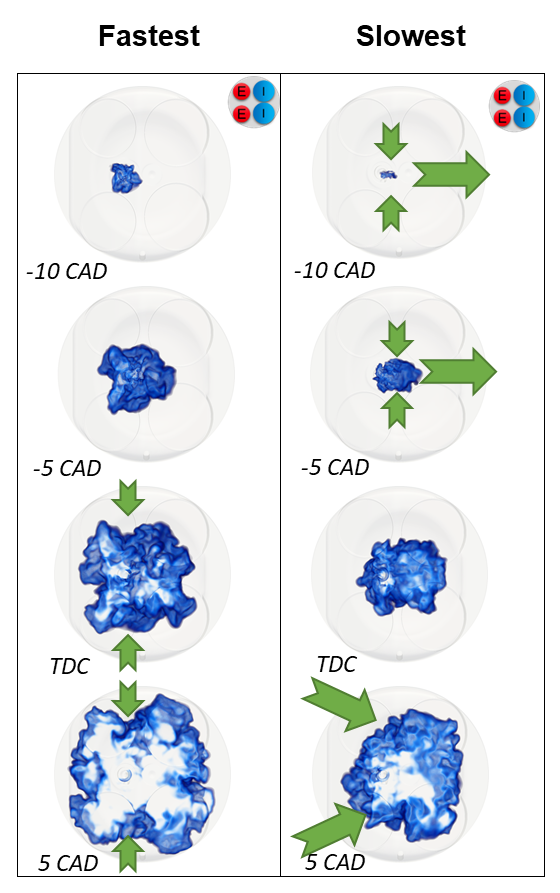The scientific field concerned by my HDR research is the 3D numerical modeling of two-phase combustion, combining research on turbulent combustion and the preparation of the reactive mixture.
Building on my PhD, I tackled a number of fundamental questions, such as the modeling of transitions between separated and dispersed phase flows, and the modeling of chemistry/turbulence interactions in stratified media. This enabled me to propose solutions that are now being concretely applied; it is this relationship between theoretical aspects and practical needs that was my area of focus in my HDR.
Today, some models have been integrated in software used in the automotive industry.
The development of a SaaS (Software as a Service) tool for LES (Large-Eddy Simulation) is an example of how such a transfer can be implemented. The tool is a remote calculation platform providing access to models developed at IFPEN for the LES of two-phase combustion in engines(1).

This tool illustrates how knowledge acquired during PhD research and more fundamental studies is made accessible, greatly facilitating interactions between industry and research.
While remaining within my specialist field, being awarded my HDR enables me to coherently combine the supervision of PhD research with R&I project management activities.
a - Comparisons of flame development for both rapid (Fastest) and slow (Slowest) combustion - TDC: top dead center – CAD: crank angle degree
(1) A. Robert, K. Truffin, N. Iafrate, S. Jay, O. Colin, C. Angelberger, Int. J. Engine Res., vol. 20, n° 7, p. 765–776.
DOI : 10.1177/1468087418796323, 2018.
(2) O. Benoit, P. Luszcz, Y. Drouvin, T. Kayashima, P. Adomeit, A. Brunn, S. Jay, K. Truffin, C. Angelberger, Technical Paper 2019-01-2209, ISSN : 0148-7191, e-ISSN : 2688-3627, décembre 2019, SAE International
Scientific contact: stephane.jay@ifpen.fr






